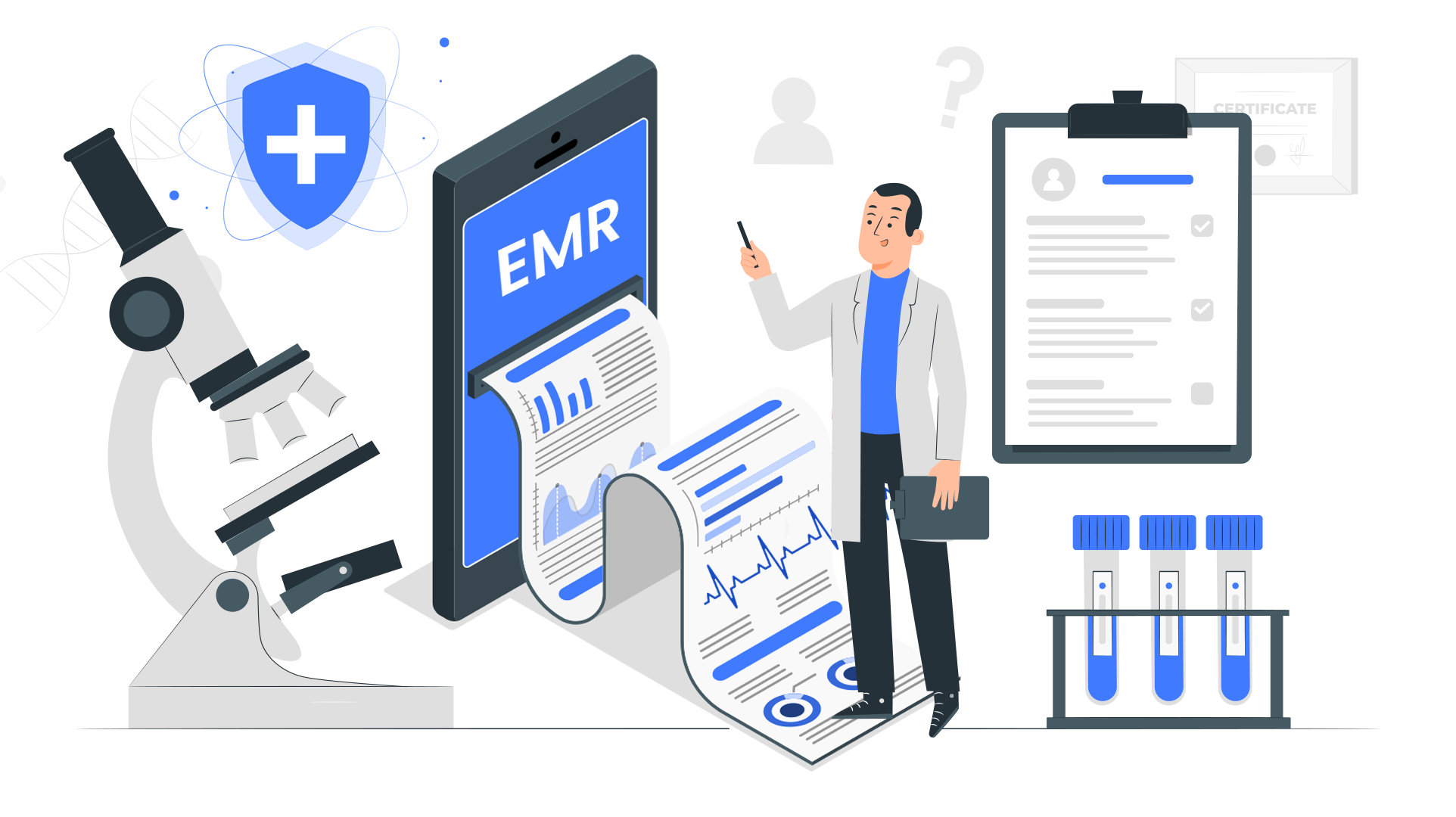EMR Systems: The Evolution and Impact of Electronic Medical Record (EMR) Systems
Emr systems: In the ever-evolving landscape of healthcare, one of the most significant advancements in recent decades has been the widespread adoption of Electronic Medical Record (EMR) systems. These digital repositories of patient health information have revolutionized the way healthcare is delivered, documented, and managed. From improving patient care coordination to enhancing clinical decision-making, EMR systems have become indispensable tools in modern healthcare settings.
What are EMR Systems?
EMR systems are digital versions of paper charts that contain a patient’s medical history, diagnoses, medications, treatment plans, immunization dates, allergies, radiology images, and laboratory test results. These systems are designed to streamline healthcare processes by enabling healthcare providers to access, update, and share patient information securely and efficiently.
ये भी पढ़े: Trade Deadline NBA: Teams Positioning for Playoff Push
The Evolution of EMR Systems
The concept of EMR systems emerged in the late 20th century with the advent of computers in healthcare. Initially, these systems were rudimentary, often consisting of basic electronic databases for storing patient information. However, as technology advanced, so did the capabilities of EMR systems.
The early 21st century witnessed a significant push for the widespread adoption of EMR systems, driven by various factors such as government initiatives, healthcare reform efforts, and advancements in information technology. In many countries, including the United States, government incentives and mandates encouraged healthcare providers to transition from paper-based records to electronic systems.
ये भी पढ़े: Financial Services Sector: Navigating the Dynamic Landscape of the Financial Services Sector
Key Features and Benefits
EMR systems offer a wide range of features and benefits that contribute to improving patient care, enhancing clinical workflows, and optimizing healthcare outcomes. Some of the key features and benefits include:
- Centralized Information: EMR systems consolidate patient information into a single, centralized digital record, accessible to authorized healthcare providers across different care settings. This ensures that clinicians have access to comprehensive and up-to-date patient data, facilitating informed decision-making.
- Efficiency and Productivity: By eliminating the need for manual paperwork and redundant data entry, EMR systems streamline administrative tasks and clinical workflows, saving time and reducing operational costs. Healthcare providers can quickly retrieve patient information, order tests, prescribe medications, and document encounters electronically, leading to increased efficiency and productivity.
- Improved Patient Care: EMR systems facilitate better care coordination and communication among healthcare providers, leading to improved patient outcomes. With access to complete and accurate patient information, clinicians can make more informed diagnoses, develop personalized treatment plans, and monitor patients’ progress more effectively.
- Enhanced Safety and Security: EMR systems incorporate robust security measures, such as encryption, authentication, and audit trails, to protect patient confidentiality and prevent unauthorized access to sensitive health information. Additionally, built-in safety features, such as medication alerts and allergy warnings, help reduce the risk of medication errors and adverse events.
- Data Analytics and Population Health Management: EMR systems enable healthcare organizations to analyze large datasets and derive actionable insights for population health management, disease surveillance, quality improvement initiatives, and research purposes. By leveraging data analytics tools, healthcare providers can identify trends, monitor outcomes, and implement evidence-based practices to improve healthcare delivery and public health outcomes.
ये भी पढ़े: Big Rig Accident Attorney: why you need a skilled attorney to deal with the aftermath
Challenges and Considerations
Despite their numerous benefits, EMR systems also pose certain challenges and considerations that healthcare organizations must address:
- Interoperability: Achieving seamless interoperability between different EMR systems remains a significant challenge, as healthcare organizations often use disparate systems that may not communicate effectively with each other. This can hinder care coordination, information exchange, and interoperability across healthcare settings.
- User Experience and Training: The usability of EMR systems varies widely, and poorly designed interfaces can impede workflow efficiency and user satisfaction. Adequate training and ongoing support are essential to ensure that healthcare providers can effectively navigate and utilize EMR systems to their full potential.
- Data Privacy and Security: Protecting patient privacy and securing health information from unauthorized access or breaches is a top priority for healthcare organizations. Compliance with regulations such as the Health Insurance Portability and Accountability Act (HIPAA) is essential to safeguard patient data and maintain trust in EMR systems.
- Data Quality and Integrity: Maintaining the accuracy, completeness, and integrity of data within EMR systems is critical for supporting clinical decision-making and ensuring patient safety. Healthcare organizations must implement data governance strategies, data validation processes, and quality assurance measures to address data entry errors, inconsistencies, and data fragmentation.
- Financial Costs: While EMR systems offer long-term benefits in terms of improved efficiency and patient care, the initial investment and ongoing maintenance costs can be significant for healthcare organizations. Budgetary constraints may pose challenges for smaller practices or resource-limited settings seeking to implement or upgrade EMR systems.
ये भी पढ़े: World Trade Center footage recalls the pain and courage of history
Future Directions
Looking ahead, the future of EMR systems is likely to be shaped by ongoing technological advancements, regulatory changes, and evolving healthcare needs. Some emerging trends and areas of development in the field of EMR systems include:
- Interoperability and Data Exchange: Efforts to enhance interoperability and facilitate seamless data exchange between different healthcare systems and stakeholders will continue to be a priority. Standards such as Fast Healthcare Interoperability Resources (FHIR) are expected to play a crucial role in promoting data interoperability and enabling innovation in healthcare delivery.
- Artificial Intelligence and Predictive Analytics: The integration of artificial intelligence (AI) and machine learning algorithms into EMR systems holds great promise for improving clinical decision support, predictive analytics, and personalized medicine. AI-powered tools can analyze vast amounts of patient data to identify patterns, predict outcomes, and assist healthcare providers in delivering more precise and proactive care.
- Patient Engagement and Telehealth: As healthcare delivery models evolve, there is growing emphasis on empowering patients to actively participate in their care through patient portals, telehealth platforms, and mobile health apps integrated with EMR systems. Enhancing patient engagement and remote monitoring capabilities can help improve access to care, promote adherence to treatment plans, and support patient self-management.
- Blockchain Technology: Blockchain technology has the potential to revolutionize health data management by providing a secure, decentralized framework for storing and sharing sensitive information. By leveraging blockchain-based solutions, healthcare organizations can enhance data security, integrity, and interoperability, while empowering patients with greater control over their health information.
- Population Health Management: Population health management strategies, focused on improving the health outcomes of entire patient populations, are expected to drive the development of advanced analytics tools and population health modules within EMR systems. By identifying at-risk populations, stratifying patient risk, and implementing targeted interventions, healthcare organizations can proactively address population health challenges and reduce healthcare disparities.
ये भी पढ़े: The Critical Role of Medical Billing and Coding in Health Care: Ensuring Accuracy and Efficiency
In conclusion, Electronic Medical Record (EMR) systems have transformed the way healthcare is delivered, documented, and managed, offering numerous benefits in terms of efficiency, patient care, and data-driven decision-making. However, addressing challenges such as interoperability, user experience, data privacy, and financial costs is essential to realizing the full potential of EMR systems in improving healthcare outcomes. With ongoing innovation and collaboration across the healthcare ecosystem, EMR systems will continue to evolve to meet the needs of patients, providers, and healthcare organizations in the digital age.
ये भी पढ़े: Medical Billing: Strategies for Efficient Revenue Cycle Management










